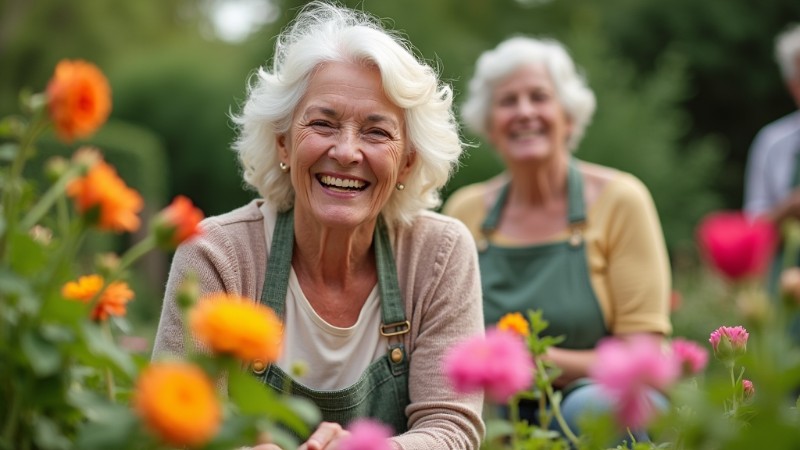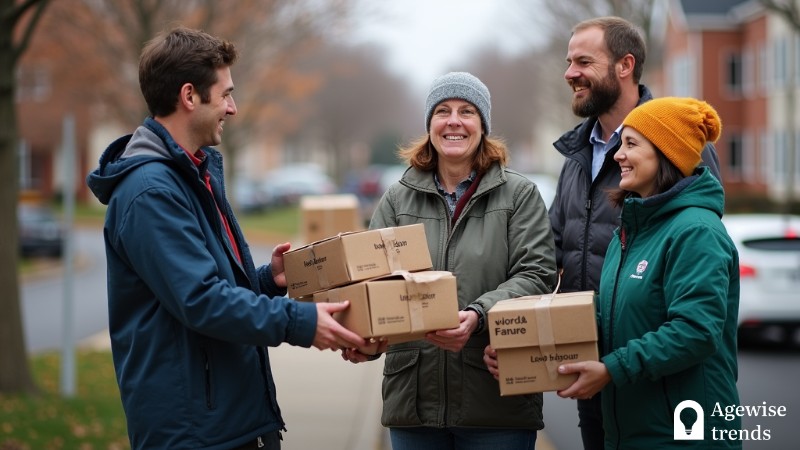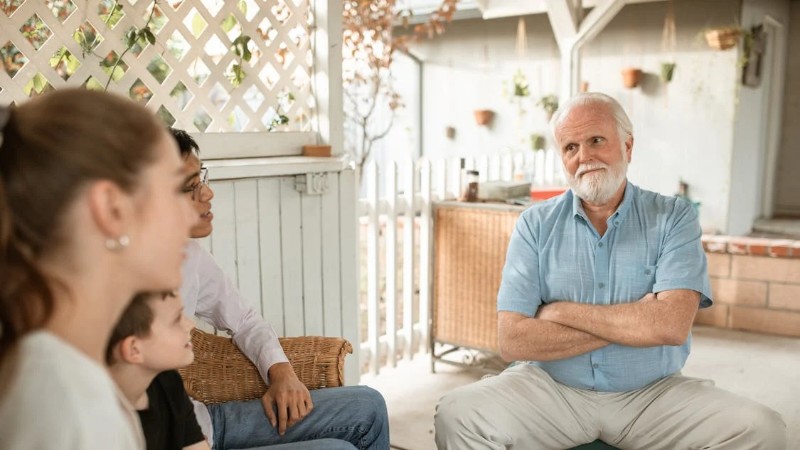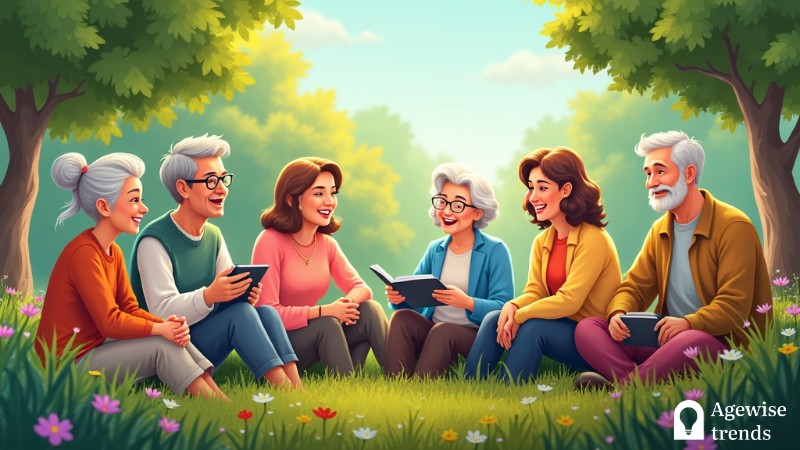People may experience feelings of isolation or disconnection from the community, a natural part of the aging process. However, maintaining an active lifestyle, staying socially engaged, and finding fulfilling ways to contribute can foster a sense of happiness and connectedness among seniors.
Through community involvement—whether by participating in volunteer work, attending social events, exploring creative outlets, or embracing technology—seniors can continue to make meaningful contributions, remain physically active, and stay socially engaged. This article explores four inspiring ways that seniors can enrich their lives through community activities and maintain a strong connection to their surroundings.
Key Takeaways
Seniors can stay engaged and happy through community involvement by participating in volunteer work, social events, exploring creative outlets, or embracing technology.
- Volunteering provides seniors with a sense of purpose, physical activity, and social connection, which can improve mental and emotional well-being.
- Social gatherings and clubs offer seniors opportunities to build meaningful relationships and develop a support system, reducing feelings of loneliness and isolation.
- Engaging in the arts, technology, or other creative pursuits can provide seniors with a sense of fulfillment, intellectual stimulation, and a way to express themselves.
Opportunities to give back and stay active
Volunteering provides seniors with an ideal way to stay physically and socially engaged while giving back to their communities. This sense of purpose can be a powerful motivator, especially as research shows that community service not only enhances mental and emotional well-being but also improves physical health.
Seniors who regularly participate in volunteer activities report lower blood pressure, enhanced mobility, and greater overall well-being. For older adults, volunteering opportunities are plentiful and can range from helping at food kitchens or animal shelters to assisting with park cleanups, mentoring, or supporting educational programs for children.
Volunteer work also allows seniors to connect with others who share similar interests and goals, creating a supportive social network. According to a 2022 report from the National Council on Aging, seniors who engage in volunteer work often experience a boost in mental health and a significant reduction in feelings of loneliness or isolation.
This sense of belonging and community helps reinforce the social bonds that are critical to healthy aging. Volunteering provides seniors with a structured environment to build relationships, meet new people, and feel valued by their communities. The personal rewards are just as significant; studies show that regular community engagement can reduce symptoms of depression, improve self-esteem, and create a lasting sense of purpose that enriches seniors’ lives.
Connections through social events and clubs
Social gatherings and clubs offer seniors an accessible platform for building meaningful relationships with people who share similar interests. This form of community involvement can be especially beneficial for seniors who live alone or are managing health conditions that may limit their physical activity.
Social activities such as book clubs, gardening groups, dance classes, language exchanges, or even cooking classes provide structured opportunities for seniors to meet others and develop a support system. Engaging in these social events fosters a sense of belonging that goes beyond casual interactions and allows seniors to cultivate friendships that add value and fulfillment to their lives.
According to the World Health Organization, social connections are vital to maintaining cognitive function, mental well-being, and overall quality of life in older adults. In fact, older adults with active social lives are less likely to experience symptoms of anxiety, depression, and cognitive decline.
By joining social clubs, seniors gain access to a safe and supportive environment that promotes companionship, personal growth, and mental stimulation. Participating in a gardening club, for instance, offers more than just the satisfaction of growing one’s own plants; it also provides physical exercise and a connection to nature, which are proven to reduce stress and improve mood.
Being part of a group helps seniors maintain routines and build valuable social skills. Clubs and social events that encourage learning and personal growth can also stimulate curiosity, inspire new hobbies, and even improve memory retention.
Whether through group activities, fitness classes, or cultural outings, these social gatherings reinforce the idea that age should not be a barrier to enjoying new experiences and making lasting friendships. Socializing can even improve physical health by reducing stress levels and promoting overall happiness, which is crucial for healthy aging.
Exploring local arts and culture
Art and culture provide seniors with a fantastic outlet for personal expression, creativity, and a sense of community. Engaging in the arts can be an enriching experience, and local cultural institutions often offer a variety of programs tailored to seniors.
From painting classes and theater outings to pottery workshops and concerts, participating in the arts lets seniors to converse with others who share their creative passions while exploring their own interests. Not only is it a great way to socialize, but engaging in artistic activities can boost mental health, improve self-confidence, and provide an enjoyable and fulfilling experience.
In addition to social benefits, engaging in the arts can also be intellectually stimulating. According to a study by the University of Oxford, participating in stimulating and creative environments helps older adults maintain cognitive sharpness and promotes longevity.
Exposure to art and culture encourages seniors to engage with the world around them in a meaningful way, reinforcing the importance of staying curious, open-minded, and adaptable as they age. Creative pursuits like painting or sculpture offer a therapeutic outlet, which can help alleviate stress, reduce symptoms of depression, and improve overall mood.
Moreover, many art centers and museums now offer online classes and virtual gallery tours, making it possible for seniors to explore their creative interests from home. Virtual options make it easier for seniors with limited mobility or health challenges to access cultural events, connect with others who share their passions, and cultivate a fulfilling artistic practice, regardless of physical limitations.
Engaging with art not only offers an enjoyable pastime but also reinforces the idea that self-expression and creative pursuits can contribute to a meaningful and enriching life as we age.
Staying connected via virtual communities
With the advancement of technology, seniors now have greater access to resources that can help them stay connected and involved in their communities, regardless of physical constraints.
Technology opens up a world of possibilities for seniors, offering platforms that allow them to socialize, participate in community events, and access educational resources from the comfort of their homes. From online forums and virtual book clubs to fitness classes and streaming services, digital platforms offer seniors a way to stay socially active and engaged in a wide range of activities.
Research shows that technology can play an essential role in combating loneliness and improving mental health among seniors. A recent study by the World Health Organization found that seniors who use technology to stay connected report fewer feelings of loneliness, lower levels of depression, and an improved sense of mental well-being.
Online communities allow seniors to maintain relationships, stay informed about local events, and participate in virtual activities that enhance their quality of life. The rise of online platforms dedicated specifically to seniors has made it easier for older adults to learn about new technologies and connect with people from diverse backgrounds and locations.
Embracing technology is also a great way for seniors to pursue lifelong learning and personal development. Many online platforms offer classes on topics such as cooking, history, language learning, or fitness, allowing seniors to engage with new subjects and stay intellectually stimulated. Social media platforms provide seniors with another way to stay in touch with family and friends, maintain relationships, and participate in community discussions.
The lasting benefits of community involvement
As people age, the importance of staying active and connected becomes even more significant. By attending social events, exploring artistic pursuits, and embracing technology, seniors can maintain a high quality of life and foster a deep sense of belonging.
Studies continue to emphasize the vital role that social engagement plays in mental and physical well-being, underscoring that involvement in community activities is an effective way to stave off isolation, support mental health, and cultivate lasting connections.














